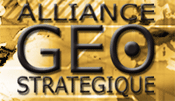Viktor Bout, le plus célèbre marchand d’armes de la planète, a été arrêté ce jeudi en Thaïlande. Des agents de la DEA (agence anti-drogue américaine) se sont fait passer pour des membres de la guérilla marxiste colombienne FARC et ont arrêté le « businessman » russe, prétextant un achat d’armes pour plusieurs millions. Viktor Bout était l’un des hommes les plus recherchés au monde, figurant sur la liste noire d’Interpol. Malgré cela, il vivait en toute impunité, en Russie, sous haute protection.
Le personnage de Bout est assez fascinant en soi. Mais ce sont surtout ses activités qui sont intéressantes, offrant un exceptionnel reflet de l’évolution de la guerre dans l’ ‘après-Guerre Froide’. Lorsque les Etats-Unis et la Russie ont arrêtés de fournir les multiples rébellions à travers le monde, coupant ainsi l’offre d’armes de manière abrupte, la demande n’en a pas pour autant diminué. Viktor Bout a alors saisi l’opportunité. Il était l’un des pionniers de ce que l’on appelle aujourd’hui la « privatisation de la guerre ».
Démarrant par le commerce de fleurs (achetées 1 dollar, revendues 100 dollars), Viktor Bout a développé son entreprise rapidement et, suite à divers contacts, il a réorienté ses affaires vers un commerce moins romantique : les armes. Au fil des années, il est devenu l’un des principaux fournisseurs en armement de différents groupes armés (y compris l’alliance du Nord en Afghanistan et les FARC en Colombie) et de gouvernements (il était très proche de nombreux dictateurs africains).
Surveillé depuis très longtemps (notamment par des enquêteurs belges), il n’avait cependant jamais été arrêté. Deux raisons peuvent expliquer cela. D’une part, il semble que ses activités s’inscrivaient dans le néant du droit international. Autrement dit, aucune loi n’interdisait à Bout de poursuivre son petit business. D’autre part, plusieurs gouvernements semblaient profiter des services de Viktor Bout.
Deux excellents articles sur Viktor Bout sont à mentionner ici. Le premier est de Douglas Farah, journaliste au Washington Post et auteur du livre « Marchand de Mort », sur Viktor Bout. Extraits :"9/11 changed Bout from an international pariah into a potential asset for U.S. intelligence services, and he quickly sensed the shift in his fortunes. Through an associate, he secretly contacted the CIA numerous times about providing weapons, helicopters, trucks and communications to the anti-Taliban Northern Alliance, according to U.S. documents and officials."
(...)"Two things make Bout unique: his airlift capacity and his easy access to stores of weapons that include the ubiquitous AK-47, attack helicopters and surface-to-air missiles. By the mid-1990s, this former Soviet air force officer had amassed more than 60 aircraft -- a fleet larger than the air forces of many NATO nations. Most of the airplanes were plucked from the former Soviet air fleet; scores of aircraft, from biplanes to super cargo carriers, had been left to rust on airstrips for lack of fuel and maintenance."
(...)"According to a 2006 Amnesty International report, Aerocom, a Moldovan-registered company linked to Bout, obtained a U.S. military contract in 2004 to fly 200,000 AK-47 assault rifles and millions of rounds of ammunition from Bosnia to Iraq. The day before the first Aerocom flight that August, the Moldovan government canceled its air-operations certificate, making any flights illegal. Bout was already on a U.N. and Treasury Department blacklist and was wanted by Interpol; Aerocom had been publicly cited in U.N. reports for illicit weapons trafficking. The flights took off nonetheless, but there are no records showing that they ever actually landed in Iraq. In other words: An international outlaw using unlicensed aircraft took control of U.S. government-purchased weapons -- which then disappeared."
Le second article est de Peter Landesman, paru dans le New York Times Magazine. Extraits :"Often, traffickers simply assume that authorities won't bother to check their cargo. In late September 2001, two weeks after the terrorist attacks in New York and Washington, a Hungarian trading company in Budapest filed a request to ship Ukrainian cargo to an American firm based in Macon, Ga. No one had ever heard of the Ukrainian company with the vanilla name -- ERI Trading and Investment Company -- and for good reason. A Hungarian bureaucrat making a random inspection of the cargo discovered that the shipment included 300 Ukrainian surface-to-air (SAM) missiles and 100 launchers. SAM's are light, mobile and easily hidden, and American agents later feared that they were going to be distributed to terrorists near America's major airports. (The cargo wasn't permitted to take off; the American buyer was arrested in June.)"
(...)"Bout flew U.N. peacekeepers to East Timor and Somalia, and possibly to Sierra Leone. (''The U.N. always goes for the cheapest contracts,'' Peleman said.) In 1994, during the Rwandan genocide, Bout said, the French government asked him to help implement Operation Turquoise to halt the fighting and facilitate aid shipments to refugees. Bout told me that he flew in 2,500 elite French troops. He also told me that he extracted Mobutu from Congo."
(...)"There is simply not a lot of law -- American, international or otherwise -- on arms trafficking. Since the mid-1990's, not one U.N. arms embargo has resulted in the conviction of an arms trafficker. The U.N. has no power to arrest. Interpol depends on the cooperation of local authorities. Astonishingly, despite having the toughest arms-trafficking laws in the world, the U.S. has not prosecuted a single case of arms trafficking."
«Rien n'est plus facile que de dénoncer un malfaiteur; rien n'est plus difficile que de le comprendre»
---Fédor Dostoïevski
vendredi 7 mars 2008
Le 'Marchand de Mort' Arrêté
Publié par
Europe in the World
à
01:10
![]()
![]()
Libellés : Insurrection, Militaire, Terrorisme
Inscription à :
Publier les commentaires (Atom)











1 commentaire:
Peut étre qu' en donnant des infos sur ses clients, il négociera avec les autorités. Il y a beaucoup d'autres gus de ce type encore dehors.
Enregistrer un commentaire